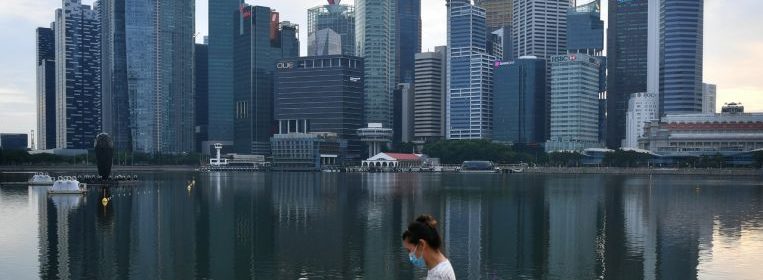More Singapore investors putting money into making a difference: UBS survey

SINGAPORE – The Covid-19 pandemic has prompted increasing numbers of investors to put their money into social and sustainable causes, according to a new survey.
It noted that around 90 per cent of Singapore respondents said they wanted investments to align with their values.
The findings of the global survey come amid efforts to develop the country into a sustainability hub, with the Monetary Authority of Singapore announcing on June 9 that it will deploy US$1.8 billion (S$2.4 billion) for climate-related investments.
It also released its first sustainability report, which noted the growth of green bonds and loans here over recent years.
“Together with the Singapore Government’s Green Plan 2030 and heightened investor awareness that capital can drive change, there is clearly a growing interest among our Singapore clients in sustainable investments,” said Mr Desmond Kuek, divisional vice-chairman at Swiss bank UBS, which commissioned the survey.
Its poll of 3,800 investors across 15 markets with at least US$1 million in investable assets found that the pandemic made nearly 80 per cent of them want to reassess their life goals.
Around 60 per cent also became more interested in sustainable investing.
“The pandemic has prompted many investors to re-evaluate what matters most to them and now have a renewed desire to contribute more to benefit society,” said UBS global wealth management co-president Tom Naratil.
“It is incredibly encouraging to see that purpose-driven investment will be a priority for investors in the years to come.”
The poll, which surveyed around 200 investors here, noted that almost 70 per cent said they were more interested in investing sustainably now than before the pandemic. This was higher than the global average of 59 per cent.
It also found that 50 per cent of high-net-worth investors in Singapore plan to increase their charitable giving.
Mr Kuek said: “We believe that this trend of investing for change is set to continue in Singapore. We see sustainable investing rising from 35 per cent today to more than 50 per cent by 2023.
“Institutional investors and shareholders are driving the move toward net zero carbon emissions and we expect sustainable investing will soon be the new normal within the decade.”
Other asset managers agreed that impact investing is on the rise here.
Mr Patrice Conxicoeur, Singapore chief executive of HSBC global asset management and head of South-east Asia, said a bank study found that the environmental, social and governance (ESG) products that are most common in the portfolios of Singapore’s mass affluent and high-net-worth investors are sustainability, diversity and education.
“When we asked them what they plan to invest in the future, the majority highlighted interest in labour rights, animal welfare and environmental impact.”
Mr Jakob Nilsson, head of distribution in Asia-Pacific at Federated Hermes, said the move by investors into more sustainable or impact-related strategies has been building for years and seems to be reaching a real tipping point, irrespective of Covid-19.
“I think the most interesting development for investors has been the realisation that you can not only invest to achieve a great financial return but also use their investment to achieve a significant non-financial return that will benefit society at large,” he added.
Ms Jayne Bok, head of investments for Asia at Willis Towers Watson, noted that institutional investors have found success in a variety of ESG projects over the past couple of years.
These range from sustainable agriculture to next-generation recycling technology, solar farms, hydropower energy and weather-related insurance products.
Asia has been a relative latecomer to the trend, but with the commitment made by banks and investment firms regionally in the past two years, high-net-worth investors will have the support to continue impact investing here, she said.
DBS private bank group head Joseph Poon added that more clients participated in ESG-oriented investing last year.
The bank raised $690 million when it relaunched an ESG-themed structured product in 2020 – a sevenfold jump from when the product was launched in 2018.
“Covid-19 and its accompanying financial market gyrations also played a part in accelerating this shift – the pandemic served as a reminder that it was critical to have well-diversified investment portfolios that are positioned for the long-term, with risks managed not only at the portfolio level, but also in each of the underlying investments,” he said.
Join ST’s Telegram channel here and get the latest breaking news delivered to you.
Source: Read Full Article
